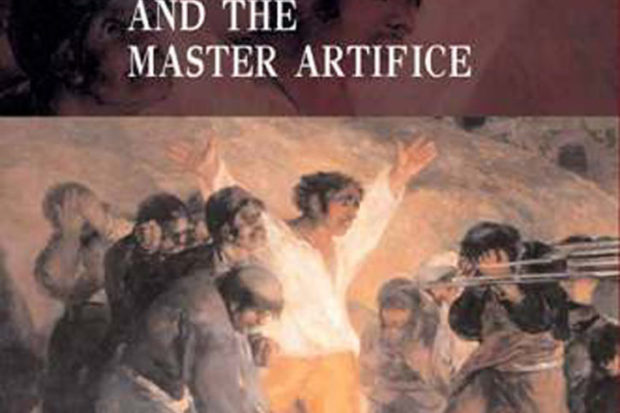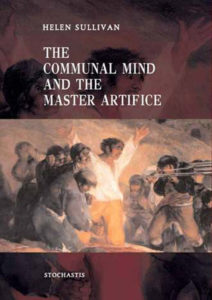
By Alex Vavoulis

The Communal Mind and the Master Artifice by Helen Sullivan. 2009.
It is impossible for someone to read this remarkable book without thinking about the contemporary scene in regard to politics and economics. The present worldwide economic crisis makes Helen Sullivan’s book even more valuable for today’s reader.
The author focuses on fascinating aspects of 16th century Spain—especially, the communal uprisings of the Spanish people, who remained true to their traditional values of solidarity and of resistance to centralized political power—in stark contrast to the historical processes that shaped modern England by breaking up the traditional local communities and paving the way for the omnipotence of parliamentary government and capitalism.
Sullivan started her academic and intellectual journey at Cornell University in Ithaca, N.Y., where she studied with the great historian Carl L. Becker. That led to the writing of this book, a legacy that she has left to those students and teachers who have the same inclinations.
The scholarship that emerges in reading this book has to be admired by those who are involved in the act of learning. This led Nobel Laureate George Seferis to say “that one of man’s highest desires is to be learned. Education is the governing factor of life.” It is sentiments such as these that also make the Sullivan book so important.
Another important aspect of the Sullivan book is her ability to weave into her discussions those of literary artists, especially when she is talking about the communal mind or what people of the community have to say about issues. Centralization of power is a prominent theme in the book, and the author’s dexterity is again seen in this quote (p. 66):
We may call the process by which the Master Artifice was constructed a process of centralization…we may also say that the results of centralization were incorporated into the enduring psychological structure and value systems of the people subjected to the centralization experience. If that is true, the concealed centralization system remained operative throughout the liberal era, and is still vigorous today.
The introduction to the book was written by Sullivan’s daughter, Amy Mims, who lives in Athens, Greece, and is a successful author herself. Many years ago, your reviewer read three books by Greek author Nikos Kazantzakis that had been translated into English by Mims. She has also written a beautiful book on the poetry of Greek poet Yannis Ritsos and a number of other titles. The introduction to the Sullivan book is a must-read.
Sullivan’s book reveals an amazing knowledge of history, sociology, economics, constitutional law and literature. Her prose style is superb and keeps the reader riveted to every detail of her monumental text. It is a fitting last stage of her journey that the e-book edition of her book has been published by Zorba Press in Ithaca—the same ambience where she started.
*****
Alex Vavoulis is professor emeritus in chemistry at Fresno State and was president of the Fresno Free College Foundation for 20 years and a founder of KFCF. Contact him at alexvavoulis@yahoo.com.
